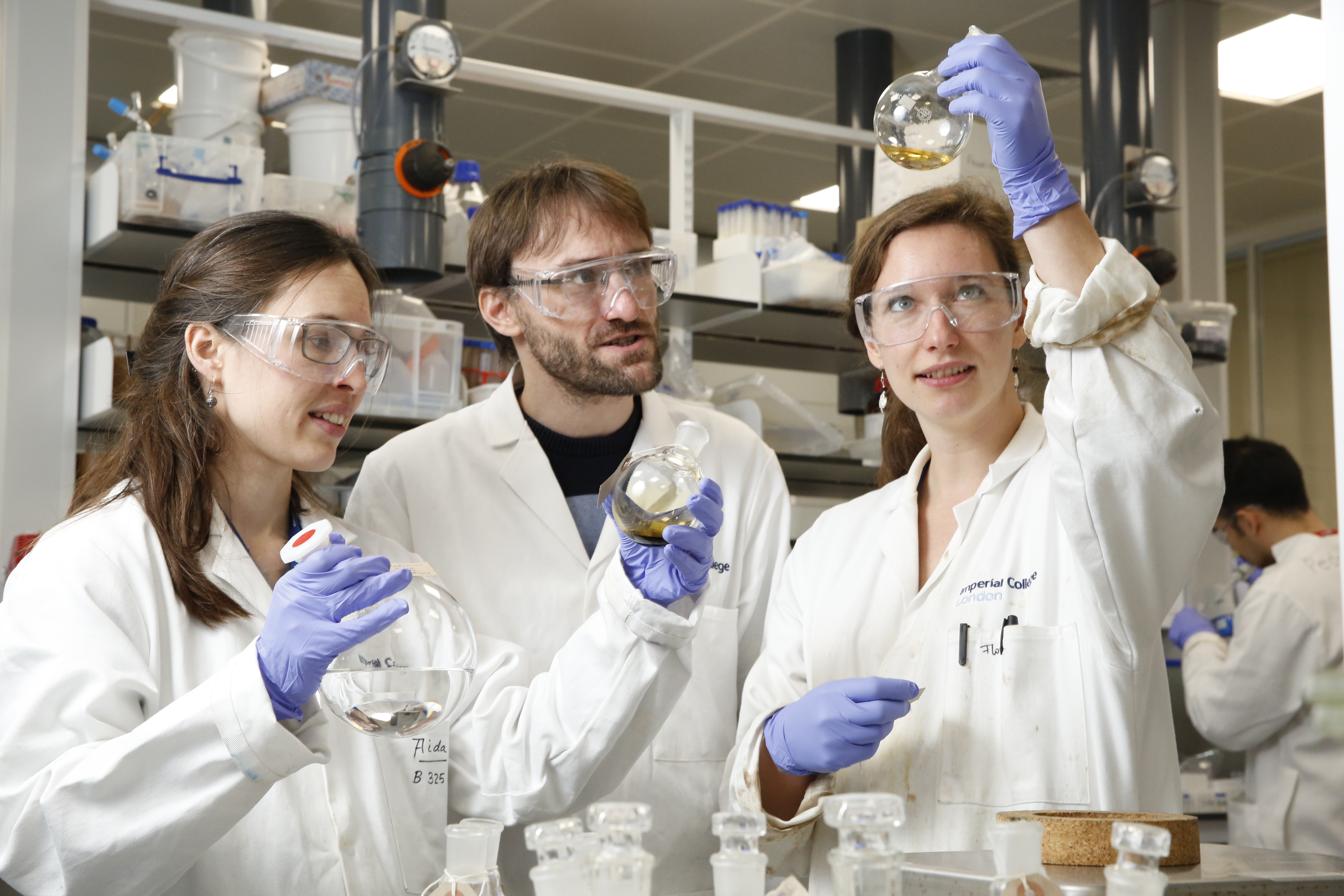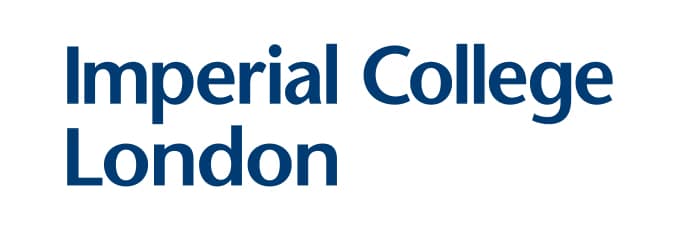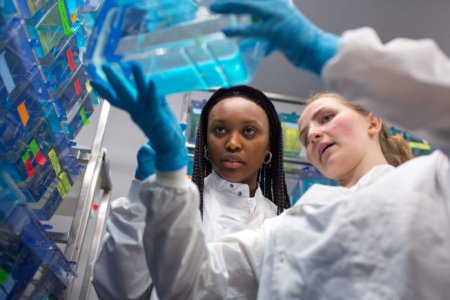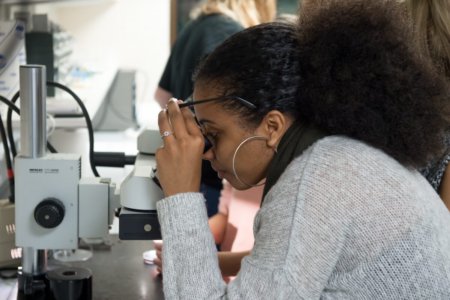Maintaining a stellar reputation has never stopped Imperial College London from tackling the world’s most pressing challenges. In fact, the latter takes priority above all else. From the heart of London, this world top 10 institution has made it its mission to develop the next generation of researchers, scientists and academics through collaboration across disciplines.
Examples can be found across campus. As one of the UK’s most international universities, Imperial is brimming with perspectives and diverse aspirations. Faculty members inspire the importance of interdisciplinary excellence by ensuring teaching activities span the core disciplines found within the Faculty of Engineering, Faculty of Medicine, Faculty of Natural Sciences, and the Imperial College Business School.
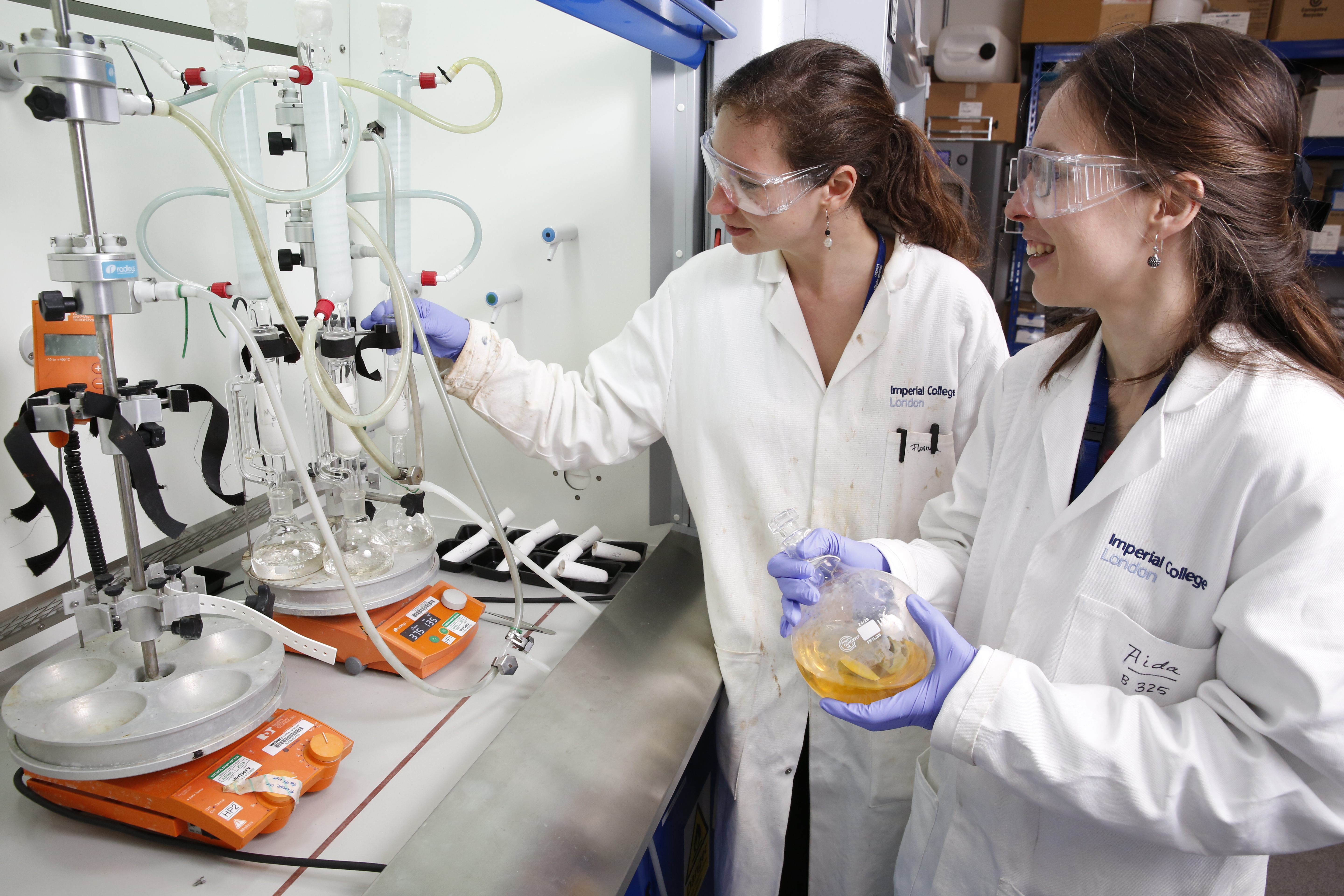
Source: Imperial College London
The result? Multidisciplinary graduates are ready to spark positive change in their unique ways. Having witnessed and participated in cutting-edge research in state-of-the-art laboratories equipped to explore the themes of data science, environment and sustainability, quantitative technologies, and bioscience; budding entrepreneurial scientists gain the zeal needed to innovate a better world. It’s easy to do so when students are granted access to a flourishing entrepreneurial ecosystem. Imperial is home to plenty of high-tech resources and spaces that will continue to launch both world-changing start ups and game-changing industry giants.
Removing micropollutants from wastewater
After travelling through many low-income parts of the world, MEng Bioengineering 2015 graduate Henrik Hagemann discovered the true severity of how industrial chemicals have polluted natural environments. Alongside Imperial peers Gabi Santosa (Life Sciences 2016), Ben Reeve (PhD Bioengineering 2016), Amanda You (PhD Materials 2016) and Shayne Petkiewicz (MSc Chemical Engineering 2016), Hagemann developed a new way of selectively removing PFAS (manmade chemicals called per- or polyfluoroalkyl substances) and other pollutants from wastewater.
“We’re targeting chemicals that are so persistent that in some cases people currently incinerate water to deal with the problem,” says Hagemann. “When you compare using our cellulose-based granules with burning water at 1,100°C, you get an idea of the difference we can make.”
Today, Puraffinity is a full-blown green technology company focused on designing smart materials for environmental applications. It has been a proud part of Imperial’s entrepreneurial ecosystem for the past six years, participating in various signature programmes such as the Venture Catalyst Challenge and WE Innovate (an entrepreneurial programme for its brightest female students). The team works from an Incubator lab in Imperial’s White City Campus but will soon be graduating to a bigger on-campus facility to accelerate their growth.
Producing sustainable biochemicals, materials and fuels
Founded in 2017 by chemical engineering research fellow Dr. Florence Gschwend, alongside Dr. Jason Hallett and Dr. Agnieszka Brandt-Talbot, Lixea is a clean-tech company established at Imperial. The team credits the university for its inception after receiving immense support from WE Innovate, Techcelerate (a programme for enterprising postdocs), and the Climate-KIC Accelerator.
Today, Lixea’s patented technology converts wood waste or agricultural residues into high-quality intermediates for sustainable chemicals, materials and fuels. It uses novel, low-cost and environmentally-friendly solvents, known as ionic liquids. The technology will help in the transition to a zero-pollution society, where waste products from industry are used in a circular bioeconomy.
It’s little wonder why the company closed a two million euros investment from the European Innovation Council Fund (EIC Fund) pilot in 2021, complementing the previous grant of 2.3 million euros.
“The convertible loan, which is now completing our funding for the pilot plant, comes as a huge game-changer to us. After having operated on a shoe-string budget for the first three years after spinning out, the funding allows us to grow into a company with the team and resources needed to take this next step,” says Dr. Gschwend.
“It has been a very unexpected journey from doing a PhD to running a small enterprise to now receiving this multi-million funding. I am very grateful for the support the College has provided along the way.”
Breaking boundaries at the Imperial Enterprise Lab
The Imperial Enterprise Lab is a co-working space that hosts competitions, speaker events, hackathons, and skills seminars for budding innovators and entrepreneurs in need of inspiration. Here, expert mentors are always around to answer questions and offer wisdom. Their guidance has helped many students and alumni launch world-changing businesses.
For starters, there’s Planera, by medicine graduate Olivia Ahn and bioengineering graduate Aaron Koshy. The personal hygiene company developed the first certified flushable and biodegradable sanitary pads.
Cai Linton, Kevin Pan, Reka Tron, and Brandon Ma joined forces to form Multus Media
after meeting through the Imperial College Synthetic Biology Society. The company is developing an animal-free replacement for blood serum that can be used to feed the cells affordably and profitably.
Edward Brialco, Edward Hill and John Bertolaso became friends as engineering students at Imperial. Since graduating, the team has worked on various sustainable design projects — one of which is Materra, a company that grows sustainable cotton and helps fashion brands reduce their environmental impact.
Meanwhile, the Innovation Design Engineering programme united Insiya Jafferjee, Amir Afshar and Edward Jones who went on to innovate The Shellworks — a dynamic company that creates materials as alternatives to plastic. The process revolves around using a biopolymer found in shellfish waste.
If these success stories have inspired you to write one of your own, click here to learn more about how Imperial College London prepares its students to innovate, lead and drive global-scale change.
Follow Imperial College London on Facebook, Instagram, Twitter, and YouTube

